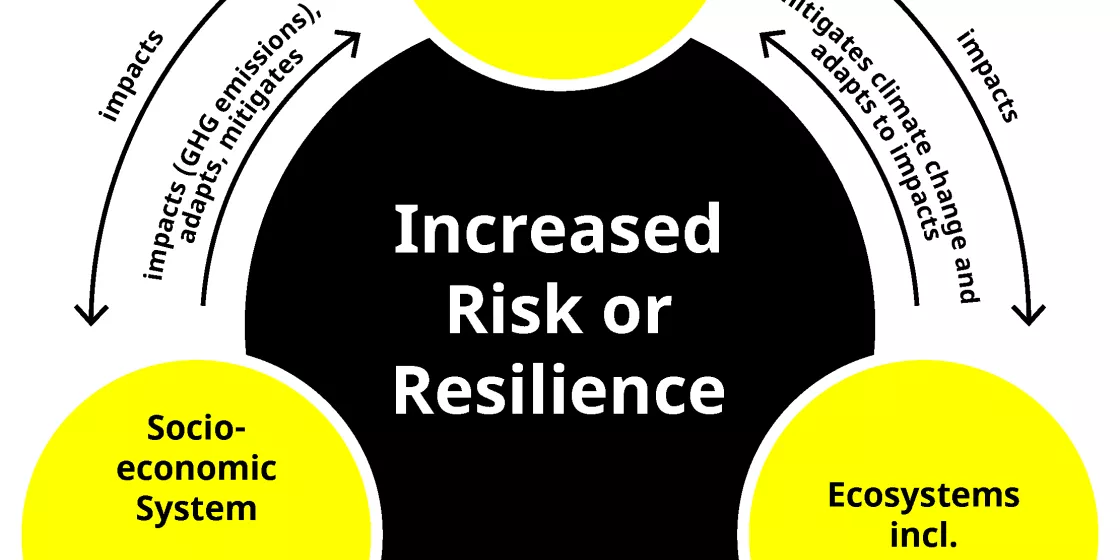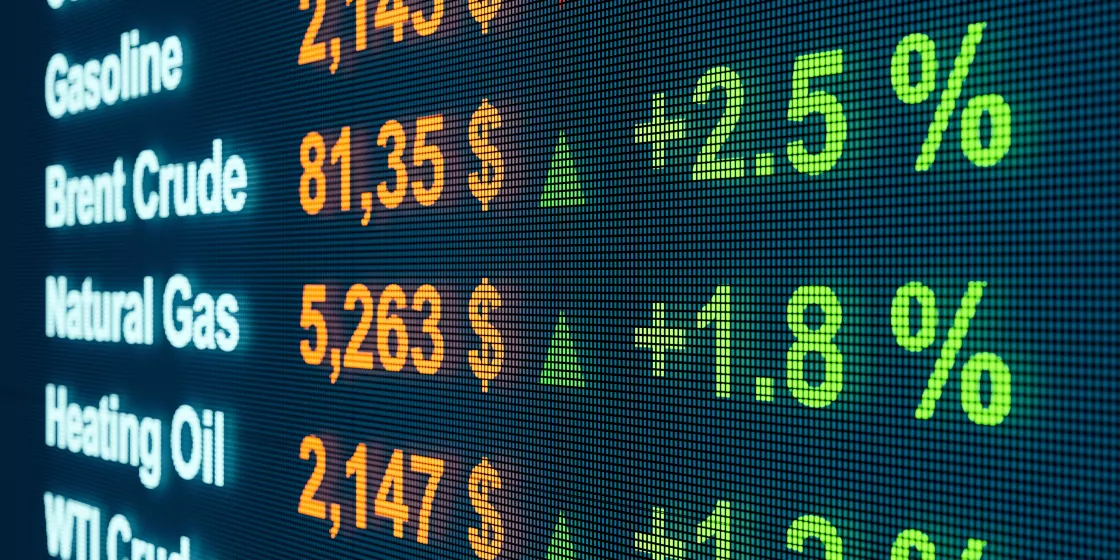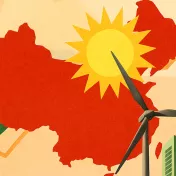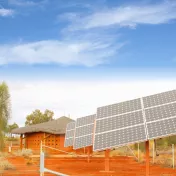Since the escalation of the war against Ukraine on 24 February 2022, Ukraine was plunged into a humanitarian crisis. The G7 and other countries swiftly imposed sanctions on Russia to condemn the invasion. This signalled strong unity among the G7. Beyond the severe humanitarian crisis in the Ukraine, the repercussions will also be felt globally. With the war dragging on for over a month now, the vulnerabilities of the G7 and, particularly, of low- and middle-income countries have become increasingly clear.
On 1 March 2022, Annalena Baerbock, the German foreign minister, said in front of the United Nations General Assembly that she will listen to calls for solidarity from other nations. Germany’s G7 presidency this year provides the chance to turn talk into action. As leading industrialised countries and, historically, major contributors to the climate crisis, the G7 will also need to live up to their responsibility to support countries in building resilience to climate impacts and other global crises. In this blog, we outline possibilities for the G7 to address the vulnerabilities in their own countries, and far beyond, to increase resilience against future crises while also supporting other nations.
“I have heard some of my colleagues say, when I was speaking on the phone around the world in the last days: ‘You are calling on us to show solidarity for Europe. But where have you been for us in the past?’ And frankly speaking, I am telling you: I hear you. We hear you. And I truly believe we should always be willing to critically question our own actions, our past engagements in the world. I am willing to do so.”
From the speech by Foreign Minister Annalena Baerbock at the Emergency Special Session of the United Nations General Assembly on Ukraine, 1 March 2022
Efficiency, renewables and diversification – a push for energy security
Even before the escalation of the war against Ukraine, fossil gas prices in the European Union (EU) were already extremely high. This situation was magnified by the reaction of the gas markets after 24 February 2022. Russia is the largest exporter of natural gas and the second largest exporter of crude oil worldwide. In anticipation of an embargo, gas prices rose significantly – even temporarily to 17-fold increase in comparison to the same time last year. Close to 45% of gas imports in the EU stem from Russia. In Germany, Russian gas has accounted for, on average, 55% of imports. This makes the EU extremely vulnerable to gas supply disruption from Russia. However, the vulnerability of low-income countries is particularly high, given their limited fiscal leeway. While the G7 have to act fast to reduce their own dependency on Russian oil and gas in line with a 1.5°C pathway, they also need to provide support to other countries to cope with rising prices and to speed up their energy transitions.
In an emergency statement on 10 March 2022, the G7 energy ministers acknowledged that a clean energy transition based on energy efficiency, “clean, safe and sustainable energies”, electrification, and hydrogen from low-carbon and renewable sources is the most important contribution to energy security. However, they also encouraged oil- and gas-producing countries to increase their capacities and emphasised the importance of liquefied natural gas (LNG) in mitigating supply disruptions. The potential end of Russian gas and oil imports presents a risk, and the African continent may become a fallback option for fossil gas. Besides methane leakage problems, which are often underestimated, the large amount of energy necessary to make LNG ready to transport (which requires liquefaction and gasification) intensifies the negative climate effect of this fossil energy source. The push for LNG needs to be carefully reconsidered as new gas import infrastructure is not needed for the EU to become independent from Russian fossil gas. Rather, the current situation should be used to encourage infrastructure for “green”, 100% renewable-based hydrogen and/or its derivatives, like ammonia. To this end, it is crucial for the G7 to adopt a common definition of green hydrogen and strict sustainability criteria for green hydrogen imports. The G7 could ask the International Energy Agency or the International Renewable Energy Agency to establish a task force to develop such a definition and sustainability criteria.
The potential short-term rise of fossil fuels in the energy mix of the G7 as a result of the war in Ukraine could lead to a perceived double standard by other countries. Thus, the G7 will have to prove that they are serious about their own energy transitions. The G7 will need to commit to decarbonising their power systems by 2035, in line with the International Energy Agency's net-zero emissions scenario. Importantly, the G7 needs to treat energy efficiency as a first and paramount priority. Renewable energy expansion and electrification come second, and diversification of supply should only be a third priority. Concrete targets for energy efficiency and renewable energy should be underpinned by concrete investment plans to back up the political talk. The importance of oil revenues in Russia should provide another push for the G7 to phase out internal combustion engines as soon as possible, but not later than 2035. Within the decarbonisation of industry, steel is a particularly hard-to-abate sector. Here, a G7 commitment to ramp up procurement of green steel, meaning an obligation for public institutions to only buy steel produced with green hydrogen and/or recycled steel, is needed to incentivise the necessary investments from industry in its production facilities.
The G7 should also enter climate and energy partnerships to support other countries in ambitious climate targets and to ensure a just transition. Offering capacity building, technological cooperation and financial support to countries through partnerships is a crucial step to build trust and support ambitious climate policy. Human rights will need to be at the centre of these partnerships.
International cooperation for food security
In addition to the rapid impacts on the energy market, the market for agricultural products has also been dramatically disrupted by the war. Russia and Ukraine are important exporters of wheat, sunflower oil and other agricultural products. For wheat, Russia is the largest exporter worldwide, while Ukraine is the world’s fourth-largest exporter. Some countries, such as Egypt and Lebanon, have already implemented export bans or restrictions given the expected shortages, which is leading to an additional price hike for essential agricultural products. A tonne of wheat was traded for US$ 465.43 on 7 March 2022 – almost double the price it was before the war escalated. In the G7, countries have the financial means to buffer the price hikes, but other countries – in particular those in the Middle East and North Africa as well as in the Horn of Africa – are extremely vulnerable to the supply shortages and the price increases owing to extreme dependence on Russian and Ukrainian exports. These countries are currently facing the risk of famine and social upheaval.
In its agriculture ministers’ emergency statement, the G7 committed to supporting Ukrainian farmers and preventing a food security crisis in Ukraine. Additionally, the ministers announced plans to cooperate within the G7 as well as with international organisations and financial institutions to support global food security. In Germany, it is important that the Federal Foreign Office coordinate a crisis centre with participation from the development and agriculture ministries. The EU and the G7 (under German presidency) must commit to compensating for the shortfall to the World Food Programme and to securing supplies for import-dependent countries in the short-term. Most low- and middle-income countries in Africa and Asia that are currently dependent on imports need support to increase their own production, using ecologically adapted methods that do not rely on expensive fertilisers and pesticides. The EU and the G7 must step up their development cooperation in this area. To reduce future vulnerability and create long-term resilience, the G7 should support a more appropriate use of food resources. Reducing the use of food commodities for animal feed and agrofuels will be important steps in that direction.
Support to enhance fiscal space for vulnerable countries
Global economic growth for 2022 is expected to decrease by 1%, from 3.6% to 2.6%, due to the war. Simultaneously, many countries are still struggling with the effects of the COVID-19 pandemic and are faced with an enormous debt burden. Thirty-nine countries are at a “very critical” debt level. To meet their external public debt service this year, low- and middle-income countries will need US$ 310 billion. These countries are particularly vulnerable to price shocks in important commodities. Climate impacts exacerbate this issue. Thus, debt levels are expected to rise even further.
Underpinning the vulnerabilities to commodity price increases is the general limit of fiscal leeway that many countries are confronted with. These countries need rapid support via debt relief. Current debt relief initiatives, such as the Debt Service Suspension Initiative of the G20 and the Common Framework, are insufficient. The G7 needs to support the establishment of an effective debt-restructuring mechanism for highly indebted low- and middle-income countries, with the participation of all creditors. Loss and damages encountered by countries, and their vulnerability to climate change impacts, should be included as criteria in the design of such a mechanism.
Resilience to climate change and protection of biodiversity

Current responses of the G7 must keep the long-term effects in mind and set the right course to strengthen resilience instead of creating further risks. | This figure was adapted from the IPCC WG II report.
The ongoing war makes it painfully clear that our societies are extremely vulnerable to disruptions in globalised commodity supply chains. However, climate change impacts are presenting additional disruptions to numerous countries already, and there are many more disruptions to come. Currently, for example, food security in North Africa and the Horn of Africa is threatened not only by the lack of exports and high commodity prices but also by climate change-exacerbated droughts. According to the latest Intergovernmental Panel on Climate Change Working Group II report, approximately 3.3 to 3.6 billion people live in contexts that are highly vulnerable to climate change. Building resilience to climate change impacts is thus an essential task for many countries and cannot be delayed by current crises.
The G7 countries need to act on several different fronts on this issue:
- The G7 countries need to avoid any further impacts. Given their high greenhouse gas emissions, the G7 have to show that they take their responsibility seriously and commit to climate pledges (nationally determined contributions) in line with a 1.5°C pathway before the global climate conference (COP27) in November 2022. If they are not able to do so at home, they should finance climate partnerships with other countries to keep a joint 1.5°C pathway within reach. In other words, the responsibility for achieving the global climate goals has another dimension: to support the necessary just transition at the international level.
- Given the shortcomings of adaptation finance, the G7 need to lead efforts to double adaptation finance by 2025, from 2019 levels, as decided at COP26. Financing for adaptation should overwhelmingly come from grants, given climate equity criteria and the importance of low-income countries implementing adaptation efforts without increasing their debt burden. The G7 should present a roadmap before COP27 on how it plans to deliver the doubling.
- Supporting low- and middle-income countries in addressing climate impacts that those countries cannot adapt to anymore also needs to be part of the G7 response. Jointly with vulnerable countries, the G7 should initiate a global protection shield to provide financial and other support for comprehensive poverty-oriented, gender-responsive solutions to manage climate risks and other disasters and to address impacts from rapid-onset events as well as slow-onset processes.
- Given current developments, an effective political early-warning system for tipping points, such as the loss of the Amazon rainforest or the West Antarctic ice shield, will be needed. The G7 should commission the development of such an early-warning system, summarised in an annual report. The report would include scientific assessment for each tipping point on a regional scale and recommendations for necessary mitigation and adaptation actions as well as measures to respond to loss and damage.
The resilience of ecosystems should be treated with the same urgency as the resilience of our societies to climate change. Biodiversity loss is advancing at a rapid speed, creating known and unknown risks for our society, and it is also limiting nature-based mitigation and adaptation opportunities. Later this year, the second part of the 15th Convention on Biological Diversity will be held in Kunming, China. The G7 needs to support an ambitious new agreement that is to be adopted at the conference. Last year, the G7 signed up to the 30by30 Initiative, which aims to protect 30% of land and ocean area by 2030. Increasing implementation and closing the finance gap to protect ecosystems is now essential.
Cascade of crises
Most importantly, the G7 should recognise that the crises we are currently facing are interrelated – that we are in a cascade of crises. Rapid responses to crises such as the war in Ukraine are crucial but can have a long-term effect on institutions and infrastructure. These effects can impact – either positively or negatively – our ability to address the climate and biodiversity crises. Current responses of the G7 must keep the long-term effects in mind and set the right course to strengthen resilience instead of creating further risks.
Please also visit our G7 topic page >>>
‘Deutsche G7-Präsidentschaft für Klimaschutz nutzen’ is funded by Stiftung Mercator. Responsibility for the contents rests with Germanwatch.









